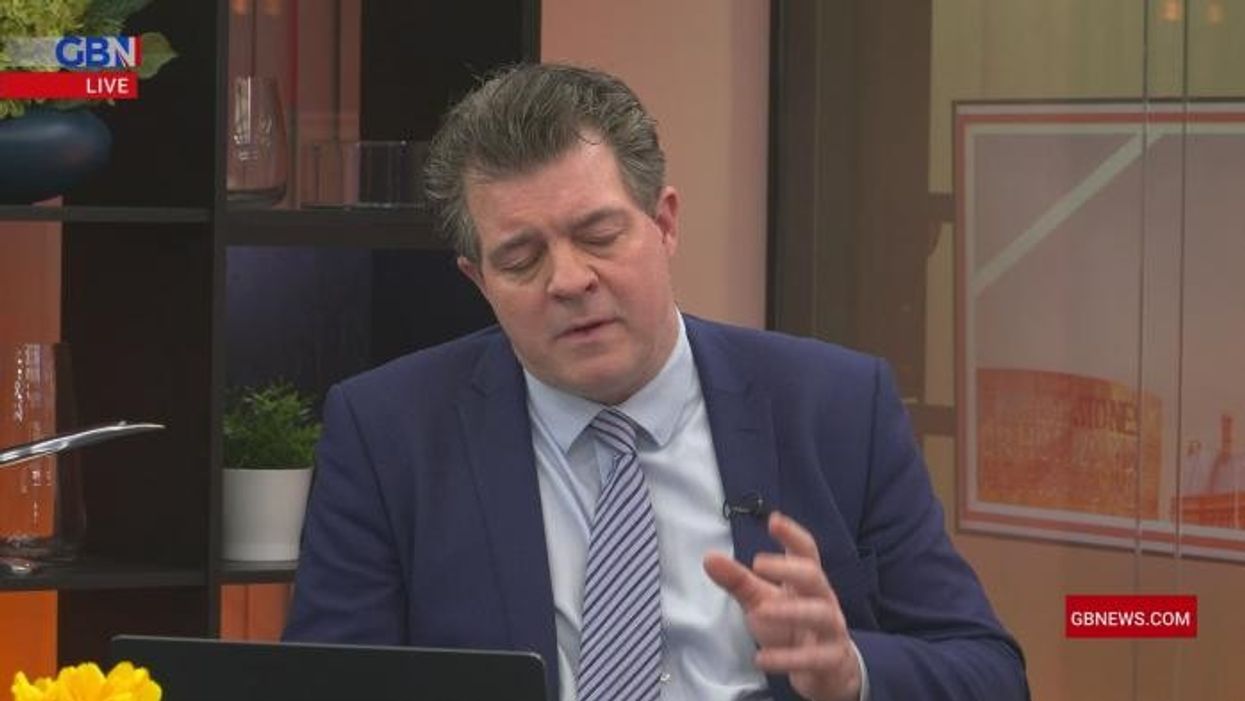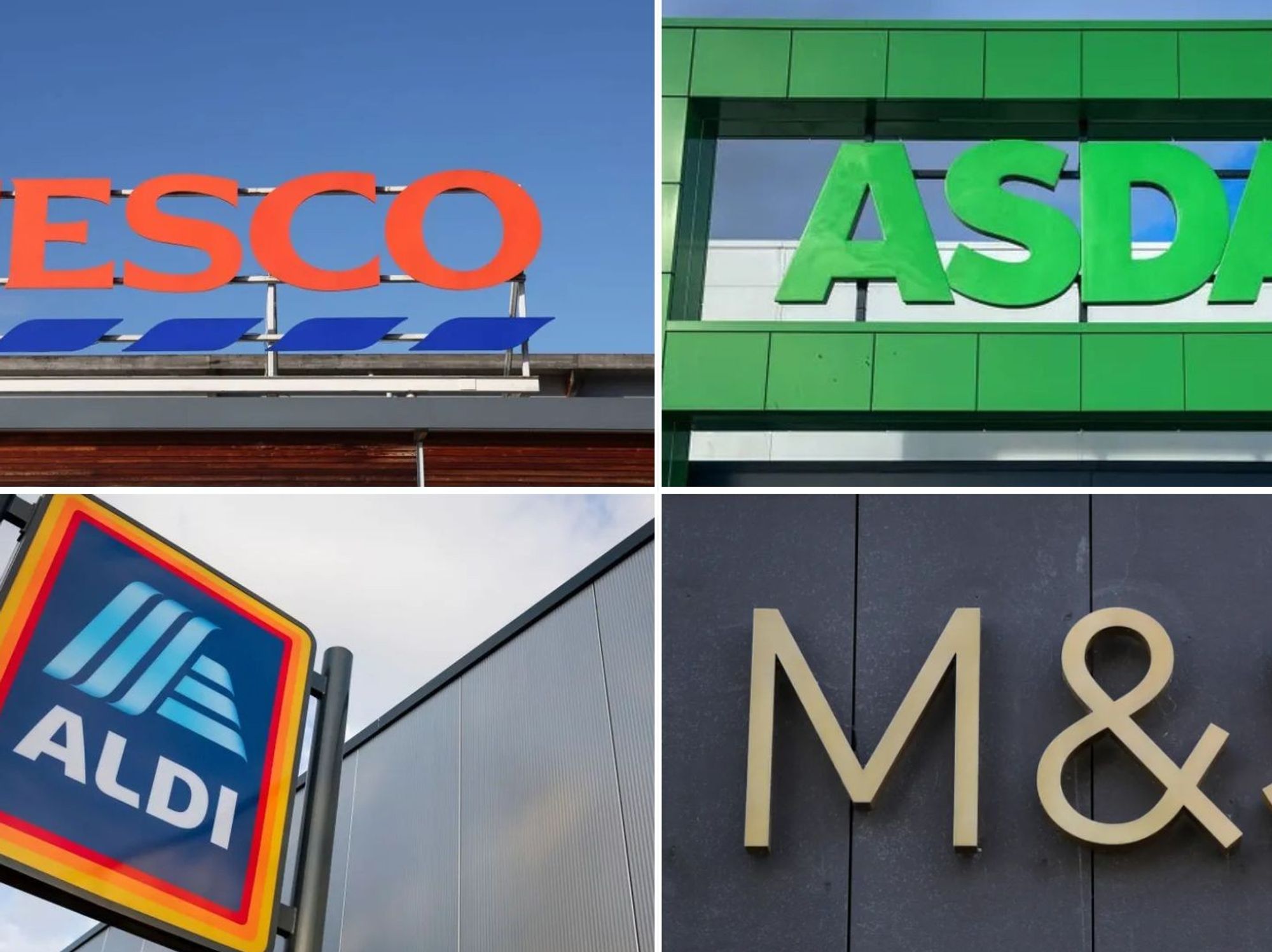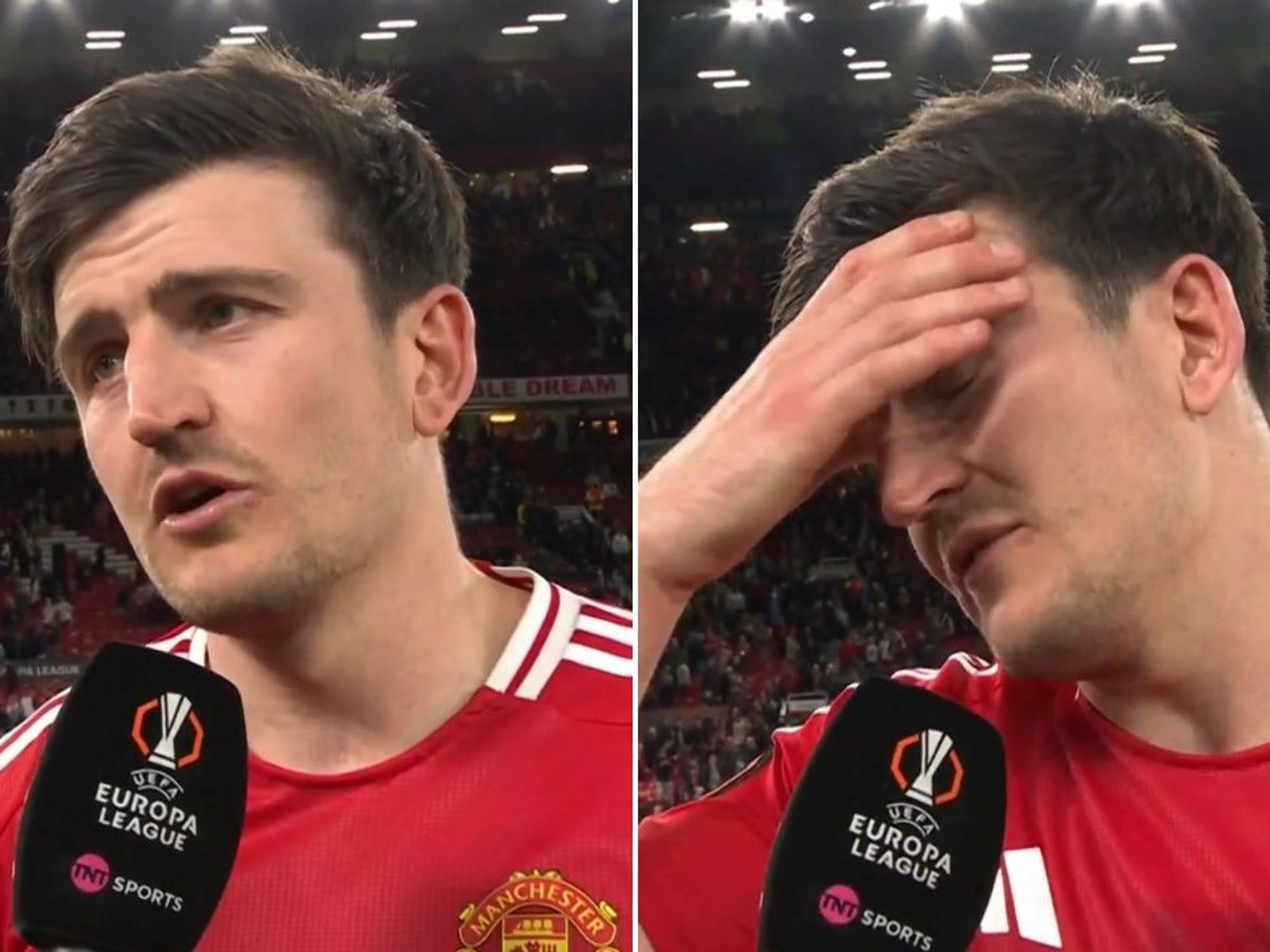Inflation continues to be higher than the Bank of England’s target but the CPI rate seems to be heading in the right direction
Don't Miss
Most Read
Trending on GB News
The consumer price index (CPI) rate of inflation fell to 3.4 per cent in the 12 months to February 2024, according to the latest figures from the Office for National Statistics (ONS).
This comes after two consecutive months of the CPI remaining at four per cent which is double the Bank of England’s target.
Analysts will be hoping this drop in inflation will trigger a sooner-than-expected interest rate cut from the central bank.
Rates have been raised by the Bank in an attempt to ease the impact of a high CPI rate on the economy, which reached a 41-year-high of 11.1 per cent in October 2022.
As it stands, the base rate is sitting at 5.25 per cent which has been passed onto borrowers and homeowners via hiked repayments.
Previously, Bank of England Governor Andrew Bailey has suggested interest rates will not be cut until the later half of 2024 but this could be reversed as inflation returns to a downward trajectory.
Do you have a money story you’d like to share? Get in touch by emailing money@gbnews.uk.
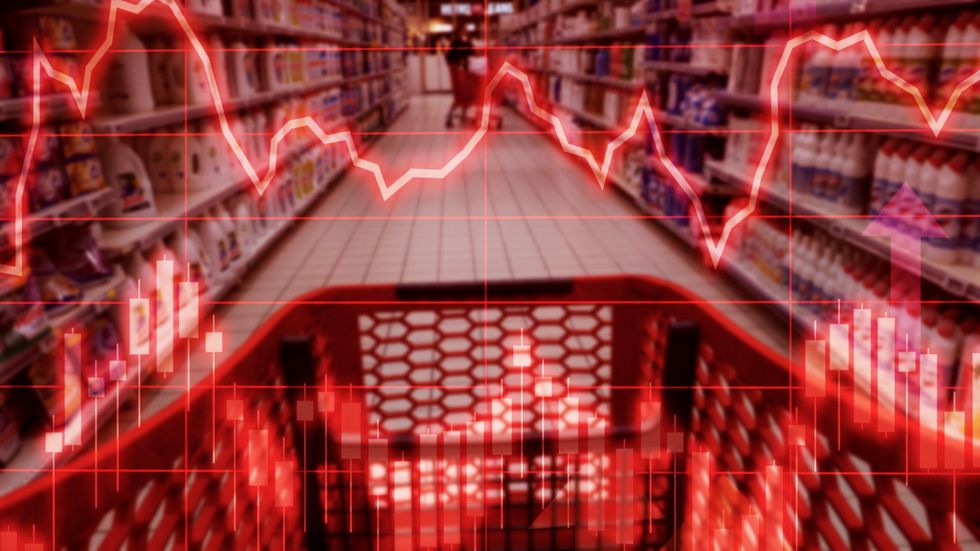
Households have been saddled with inflation-hiked prices for goods and services
GETTY
Alastair Douglas, the CEO of TotallyMoney, warned that people’s financial situations are unlikely to have “suddenly improved” despite this dramatic drop in inflation.
He said: “In fact, Covid and the ongoing cost of living crisis have driven a record 6.7 million people into financial difficulty.
“And this, along with a Government lacking in both leadership and direction, means consumer confidence has taken a dip — and the opposition party is failing to fill voters with even a fraction of the confidence and optimism which brought them into power last time.
“Back then, the theme tune to Labour’s 1997 landslide victory was, D:Ream’s ‘Things can only get better’ — but right now, many will just be praying that they don’t get any worse.”
According to the ONS, the biggest downward contributions to this change in inflation came from food, as well as restaurants and cafes.
Conversely, the largest upward contributions came from housing and household services, and motor fuels.
Core CPI, not including energy, food, alcohol and tobacco, increased by 4.5 per cent in the 12 months to February 2024, which is down from 5.1 per cent in January.
The CPI goods annual rate eased from 1.8 per cent to 1.1 per cent, while the CPI services annual rate dropped to 6.1 per cent.
Reacting to February’s CPI inflation figure, the Chancellor Jeremy Hunt said the Government’s “plan is working”.
Mr Hunt cited that the inflation rate is now estimated to hit the Bank of England’s two per cent target within a matter of months.
LATEST DEVELOPMENTS:
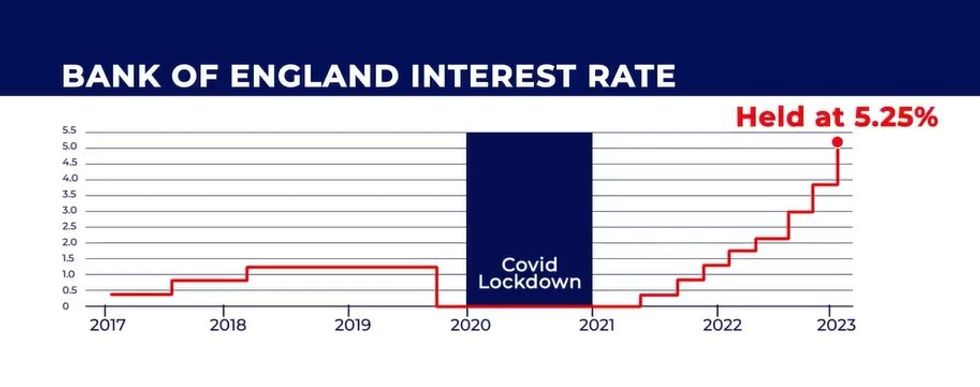 The Bank of England base rate is at a 15-year high of 5.25 per cent GB NEWS
The Bank of England base rate is at a 15-year high of 5.25 per cent GB NEWSHe said: “This sets the scene for better economic conditions which could allow further progress on our ambition to boost growth and make work pay by bringing down national insurance as we work towards abolishing the double tax on work – but only if we can do so without increasing borrowing or cutting funding for public services.”
However, shadow chancellor Rachel Reeves noted that “prices are still high” for many families across the UK despite this fall in inflation.
She explained: “Prices are still high, the tax burden is the highest it has been in seventy years and mortgage payments are going up. Now Rishi Sunak is putting forward a reckless £46billion unfunded tax plan to abolish National Insurance that would risk crashing the economy and re-running the disastrous Liz Truss experiment.
“Britain cannot afford another five years of this failed Conservative government. It’s time for change and it’s time for Rishi Sunak to set the date for the election.”

